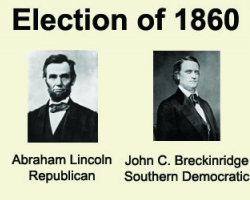
1860 – With tensions over slavery dominating the national landscape, the election of 1860 became a free-for-all. The big problem for the Democratic Party was the slavery issue had split the party, and the country, along geographical lines. While the (Northern) Democrats selected Stephen A. Douglas to represent them, Southern Democrats eventually chose to form their own party and run their own candidate, John Breckinridge.
At the national Republican convention, none of the front-runners could find enough support to represent the entirety of the party, including the new West (along with California, Oregon was now a state. Minnesota and Iowa had also joined the Union). Abraham Lincoln became the compromise candidate.
But that wasn’t the end of it. Yet another party had formed, the Constitutional Union Party. Made up of members of the other political parties (including the Whig Party) they chose Speaker of the House John Bell as their candidate.
Breckinridge proved far more attractive to Southern voters, and the Southern Democrats won 11 states and 72 electoral votes. Bell and the newly formed Constitutional Union Party carried three states and 39 electoral votes. Douglas and his (Northern) Democrats won only one state, Missouri, with 12 electoral votes, despite winning 1.3 million popular votes. The winner in the election, though, was Lincoln, carrying 18 states and 180 electoral votes, a clear majority.
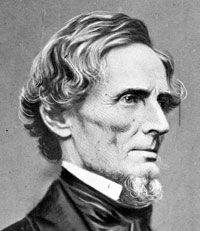
1861 – Jefferson Davis was elected president of the Confederate States of America. He ran without opposition, and the election simply confirmed the decision that had been made by the Confederate Congress earlier in the year. Davis was elected to a six-year term as established by the Confederate constitution. He remained president until May 5, 1865, when the Confederate government was officially dissolved.
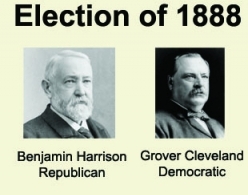
1888 – Benjamin Harrison, a grandson of former President William Henry Harrison, defeated President Grover Cleveland. On election day, Cleveland and the Democrats garnered more popular votes than Harrison and the Republicans, but it was the Electoral College that determined the winner, as always, and Harrison, by less than 1 percent, managed to win Cleveland’s home state of New York, and with it, the election. The final national popular vote tally had Cleveland ahead by just more than 90,000 votes (out of nearly 10.5 million votes cast) but the final electoral tally was 233-168, to Harrison.
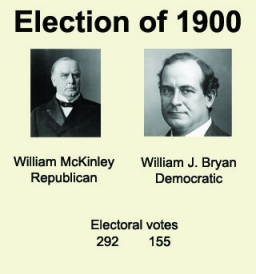
1900 – With the United States enjoying a return to economic prosperity and a victory in the Spanish-American War, President William McKinley easily defeated William J. Bryan at the polls, just as he had done four years earlier.
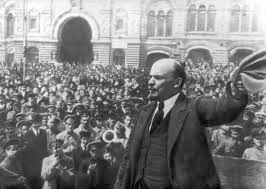
1917 – Led by Bolshevik Party leader Vladimir Lenin, leftist revolutionaries launched a nearly bloodless coup d’État against Russia’s Provisional Government. The Bolsheviks and their allies occupied government buildings and other strategic locations in the Russian capital of Petrograd (now St. Petersburg) and within two days had formed a new government with Lenin as its head. Bolshevik Russia, later renamed the Union of Soviet Socialist Republics, was the world’s first Marxist state.
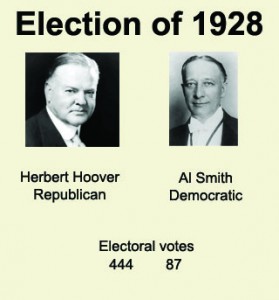
1928 – With incumbent Calvin Coolidge declining to run for re-election, Herbert Hoover, his Secretary of Commerce won the Republican nomination and squared off against New York Governor Al Smith.
As a committed anti-Prohibition candidate, Smith attracted not only drinkers but also voters angered by the corruption and lawlessness brought about by prohibition. However, as the first Catholic to be nominated, he was feared among Protestants, including German Lutherans and Southern Baptists, who believed that the Catholic Church and the Pope would dictate his policies.
Hoover was perhaps most well-known for his role at the head of the U.S. Food Administration. He was also famous for organizing the return of tens of thousands of Americans from Europe after World War I and for his volunteer work helping the countries of Western Europe recover from the war.
In the end, the booming economy and the anti-Catholic concern among voters resulted in a landslide victory for Hoover.
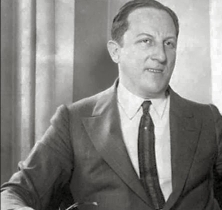
1928 – Arnold Rothstein, the head of the Jewish mob in New York, died, two days after being shot by George “Hump” McManus, for failing to pay a large gambling debt.
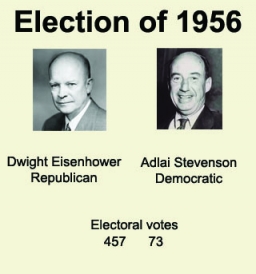
1956 – President Dwight Eisenhower, in a re-run of the 1952 election,easily defeated Adlai Stevenson. It was the first presidential campaign to make wide use of television ads. Eisenhower had been in poor health during his first term, and the Democratic campaign tried to make this an issue. However, Eisenhower had also helped bring an end to the Korean War and was still very popular for his role in helping end World War II.
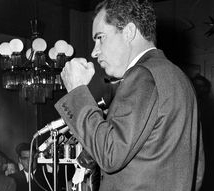
1962 – Former Vice-president Richard M. Nixon lost the California election for governor to Edmund Brown. Nixon blamed the news media for his loss and promised, “You don’t have Nixon to kick around anymore.”
1962 – The United Nations General Assembly adopted a resolution condemning South Africa’s racist apartheid policies and calling on all its members to end economic and military relations with the country. The resolution had little effect. It wasn’t until 1991, after decades of sanctions and increasingly violent demonstrations, that many apartheid laws were repealed.
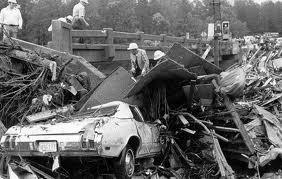
1977 – The Toccoa Falls Dam in Georgia gave way and 39 people died in the resulting flood. Ninety miles north of Atlanta, the Toccoa (Cherokee for “beautiful”) Falls Dam was constructed of earth across a canyon in 1887, creating a 55-acre lake 180 feet above the Toccoa Creek.
Just hours after a volunteer fireman had inspected the dam and found everything in order, the dam suddenly gave way. Water thundered down the canyon and creek, approaching speeds of 120 miles per hour. Although there was a tremendous roar when the dam broke, residents had no time to evacuate. Within minutes, the entire Toccoa Falls Bible Collegecommunity was slammed by a wave of water. One woman managed to hang onto a roof torn from a building and ride the wave of water for thousands of feet. Her three daughters, however, were not so fortunate: They were among the 39 people who lost their lives in the flood.
1982 – Shirley Allen was arrested for poisoning her husband, Lloyd Allen, with ethylene glycol, commonly known as anti-freeze. After witnessing her mother spike Lloyd’s drinks with the deadly substance, Shirley’s own daughter turned her in to the authorities. Lloyd Allen was Shirley’s sixth husband and the second to die from mysterious causes; the other four had divorced her. When Allen’s death was investigated, toxicology reports confirmed that his body tissue contained a lethal amount of ethyl glycol. After a short four-day trial, Shirley Allen was sentenced to life in prison in 1983.
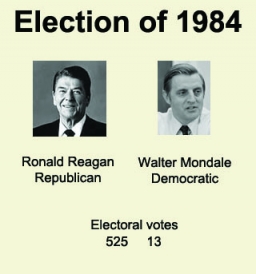
1984 – President Ronald Reagan enjoyed a massive win over former Vice-president Walter Mondale. Reagan’s popularity, his tough stance against the spread of Communism, and the country’s rising prosperity were all factors. Reagan’s 525 electoral votes (out of 538) is the highest total ever received by a presidential candidate. Mondale’s only electoral votes came from the District of Columbia and his home state of Minnesota, which he won by a mere 3,761 votes.
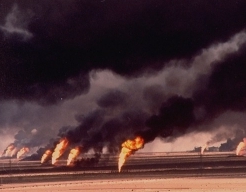
1991 – A Canadian team put out last of 751 oil well fires started by Iraqi president Saddam Hussein’s troops at the close of the Gulf War. The fires had burned for approximately ten months, and as a result, approximately 6 million barrels of oil had been lost each day.
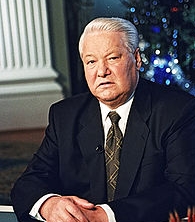
1991 – BorisYeltsin, President of the Russian Federation, issued a decree banning all Communist Party activities on Russian soil.

1995 – Art Modell, the owner of the Cleveland Browns, announced he was moving the team to Baltimore. A county referendum would have provided nearly $50 million in revenue from a “sin tax” on alcohol and cigarettes, but for Modell, that wasn’t enough. “It’s just not the answer,” he told reporters. “It doesn’t do the job.”
As shown above, Cleveland fans were not happy.
Compiled by Ray Lemire ©2014 RayLemire.com. All Rights Reserved.You may not, under any circumstances, reproduce, record, publish, republish, post, transmit, publicly display, publicly exhibit or distribute any articles or photographs on RayLemire.com without obtaining the express written consent of the Operator.